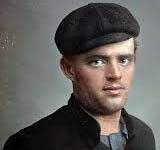E Bronte | Characterization of Heathcliff in Wuthering Heights
E Bronte | Characterization of Heathcliff in Wuthering Heights
E Bronte | Characterization of Heathcliff in Wuthering Heights
The term ‘character’ refers to the mental and moral qualities of a person which are expressed through his outlook, dealings, speeches, and actions in society. Heathcliff is a leading character (protagonist) in the novel entitled ‘Wuthering Heights’ by Emily Bronte (1818-1848). He is an orphan picked up by Earnshaw, the owner of Wuthering Heights. But since his introduction to the Earnshaw family, he met adverse treatment almost from all, except only from Earnshaw and his daughter Catherine. Then Heathcliff gradually grew to be harsh, cruel and vindictive in nature. Throughout the novel, he has played the role of an extremely brutal villain and at the same time a queer kind of transcendental lover. The novelist has portrayed him with crystal vividness through his speeches and actions. We can illustrate his two-facet characters (roles) below:
First, we can bring his villainy into consideration. As a villain, he is not only wicked thorough and thorough but vindictive, diabolic, brutal and greedy of the worst kind. He afflicts his villainy and brutality upon Isabella (his wife), Hareton (his nephew-in-law) and Linton (his own son) and so on.
Heathcliff pretends to fall in love with Isabella the sister of Edgar Linton and then eloped with her. Soon after getting married to her, he begins to treat her in such a brutal manner that she had to run away forever. She, in one letter, tells Nelly (the housekeeper) about Heathcliff’s cruelty towards her as:
”A tiger or venomous serpent could not rouse terror in me equal to that which he wakened…”
Again she comments on him:
”He is a lying fiend, a monster and not a human being.”
Heathcliff’s villainy is highly vindictive towards Hareton. After the death of Hindley the charge of his son, Hareton goes to Heathcliff and then he avails this opportunity and succeeds to turn him into a brute like himself. He deprives him of education and incited him to practice bad manners. Consequently, Heathcliff succeeded in his task of revenge upon him and feeling satisfied, says:
”He (Hareton) satisfied my expectation. If he were a born fool I should not enjoy it half so much.”
Even his treatment of his own son Linton Heathcliff and young Catherine is more brutal and diabolic. At first, he speaks to young Catherine kindly and induces her to his house making her a prisoner at Wuthering Heights in order to marry her to young Linton. Once he inflicted terrific slaps on her head, seizes her by her hair and threatens to kill her. Then she expresses her feelings towards him, as:
”Mr Heathcliff, you have nobody to love you…Nobody will cry for you when you will die.”
His treatment of his own son Linton is more shocking. He punished his son for turning instrumental in afflicting young Catherine. At Linton’s death-bed, Heathcliff, instead of treating him comfortably, says:
”His life is not worth a farthing.”
Nelly the house-keeper at Thruscross Grange, whom Heathcliff kept under detainment for five nights, uses the following words for him:
”Judas! Traitor! A hypocrite! A deliberate deceiver!”
Besides being cruel and brutal in his revenge towards almost all of the Earnshaws and the Lintons, he was also greedy to the worst kind. When all the descendants except young Cathy of the Linton family and Hareton of the Earnshaw family perished, then Heathcliff took seize over the two houses and utters:
”I get lever and mattock to demolish the two houses and train myself to be capable of working like Hercules.”
Secondly, Heathcliff is portrayed as a strange kind of transcendental lover. His love for Catherine is extraordinary. He seems to have no carnal desire. But Cathy married Edgar Linton, not Heathcliff, which incited rebellion in Heathcliff and gradually he became more and more severe, cruel, brutal, and satanic. Though she married off to Edgar other than Heathcliff, yet their reciprocal love did not lessen. It seemed to be increasing with the passing of time. So after eighteen years of Catherine’s premature death, Heathcliff claims:
”She has disturbed me day and night through eighteen years- incessantly.”
Once he expressed his pangs of separation to Nelly, as:
”The entire world is a dreadful collection of memoranda that she did exist, and that I have lost her.”
The above illustration shows that Heathcliff is a queer villain as well as an extraordinary lover. In the whole range of English novels, there is not, except Heathcliff and Heathcliff alone, a character equal to him, both in villainy and in love. 0 0 0 Characterization of Heathcliff in Wuthering Heights
E Bronte | Characterization of Heathcliff in Wuthering Heights
Read More: The Theme of George Eliot’s Novel ‘Middlemarch’
E Bronte | Characterization of Heathcliff in Wuthering Heights
N. B. This article entitled ‘E Bronte | Characterization of Heathcliff in Wuthering Heights’ originally belongs to the book ‘World Novel Criticism‘ by Menonim Menonimus. Characterization of Heathcliff in Wuthering HeightsE Bronte | Characterization of Heathcliff in Wuthering Heights
Books of Literary Criticism by M. Menonimus:
- World Short Story Criticism
- World Poetry Criticism
- World Drama Criticism
- World Novel Criticism
- World Essay Criticism
- Indian English Poetry Criticism
- Indian English Poets and Poetry Chief Features
- Emily Dickinson’s Poetry-A Thematic Study
- Walt Whitman’s Poetry-A Thematic Study
- Critical Essays on English Poetry
- Tawfiq al-Hakim’s Novel: Return of the Spirit-An Analytical Study
- Tawfiq al-Hakim’s Novel: ‘Yawmiyyat Naib Fil Arayaf’-An Analytical Study
- Analytical Studies of Some Arabic Short Stories
- A Brief History of Arabic Literature: Pre-Islamic Period …
Related Searches:
- Characterization of Heathcliff in Wuthering Heights
- Tension in the Characterisation of Heathcliff
- Character Analysis Heathcliff
- Use of Wit and Irony in ‘Pride and Prejudice‘
- Elements of Wit and Irony in the Novel ‘Pride and Prejudice’
- Heart of Darkness
- Heart of Darkness: Marlow
- ‘Middlemarch’ Themes
- ‘Middlemarch’ Themes-Course Hero











